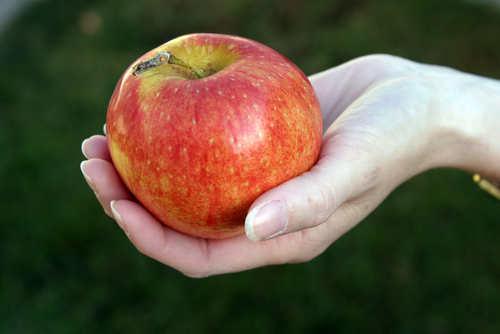Two of my new colleagues at Patheos, Libby Anne and Dan Fincke, have recently launched Forward Thinking: A Values Development Project, a collaborative discussion in the spirit of the old blog carnivals. This week’s conversational prompt is, “What would you tell teenagers about sex?”
Now, I’m not encouraging teenagers to have sex, because (1) no one should be pushed to have sex before they, themselves, have decided that they’re physically and emotionally ready; and (2) it doesn’t really matter what anyone says one way or the other, because teenagers are going to have sex anyway. They’re certainly not waiting for our permission.
On the other hand, the idea that we shouldn’t talk to teenagers about sex at all, or that we should do so only in a context of abstinence, is a disastrous, self-defeating plan. It stems from the religious prohibitionist thinking that teaching teenagers about sex is tantamount to encouraging them to have sex, and that the best way to prevent people from doing something we disapprove of is to give them no information whatsoever about it, so that they don’t become interested.
Obviously, this demonstrates a hilariously poor grasp of human psychology. Keeping something taboo and mysterious only makes it more enticing – a basic fact of human psychology that the religious right has never been able to grasp, going back to the very first story in their own holy books. The statistics bear this out, as more socially conservative states that deemphasize sex ed have higher teen pregnancy rates, higher rates of STD infection, and higher rates of divorce, in addition to other social ills.
If we want people to act like adults, the best way to achieve that is to treat them like adults. That means we have to teach them everything they need to know to make informed choices and have sex safely: the importance of enthusiastic consent, how to use contraception, and all the rest of it. I’m sure other bloggers will address these areas, so I won’t dwell on them. I want to focus on the deeper importance of de-mystification, of breaking down the taboos and false ideas around sex, and here’s what I think is the biggest one:
Sex has no magic power to transform you. There’s no foreordained law that says you’ll fall permanently or irrevocably in love with the first person you have sex with. Nor does having sex in any way change or diminish your ability to love other people in the future. It absolutely does not mean that you’re ruined, spoiled or used up, as abstinence preachers say. That idea is the same kind of ridiculous fearmongering as the old-time quacks and preachers who said that masturbation would make you blind and insane.
Ironically, this idea that sex is a fundamental life transition, that everything After Sex is different from everything Before Sex, is believed both by sex-phobic fundamentalists (who dread it) and by sex-obsessed pop culture (which elevates it above all else). The fact is, they’re both wrong. Sex doesn’t make you a different person; there’s no fundamental difference between virgins and non-virgins. Sex is just an experience, and the first time you have it is no different than the first time you have any other pleasurable experience, like running a race, meeting a celebrity, or reading a great book. It’s one more thing to add to your catalog of life experiences – that’s all. It may make you feel more confident, more assured, or more grown-up, but it also may not, so you shouldn’t seek it out for that purpose or be disappointed if that doesn’t happen.
Image credit: Shutterstock
